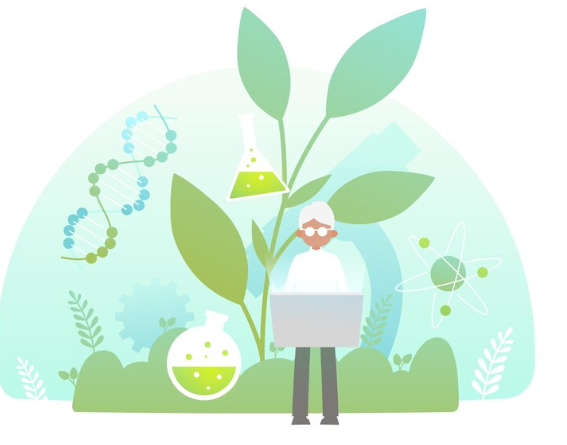Natural nitrogen for plants
Harnessing the Power of Natural Nitrogen
Nitrogen is a vital nutrient for plant growth, playing a crucial role in their development and overall health. While there are various synthetic fertilizers available to provide plants with nitrogen, many gardeners and farmers are turning to natural sources to enhance their crops’ growth in a sustainable manner. In this guide, I’ll explore the benefits of natural nitrogen for plants and how you can incorporate it into your gardening practices.
Understanding Nitrogen:
Nitrogen is one of the primary nutrients essential for plant growth and is responsible for various processes such as photosynthesis, protein synthesis, and the formation of chlorophyll. Lack of nitrogen can result in stunted growth, yellowing leaves, and decreased yield. Therefore, ensuring an adequate supply of nitrogen is crucial for healthy plant development.
Types of Natural Nitrogen Sources:

Compost: Composting organic matter, such as kitchen scraps, yard waste, and manure, creates a nutrient-rich fertilizer that releases nitrogen slowly as it decomposes. Incorporating compost into the soil improves its fertility and provides a steady supply of nitrogen to plants.
Cover Crops: Planting cover crops, such as legumes like clover and vetch, helps fix atmospheric nitrogen into the soil through a process called nitrogen fixation. When the cover crops are incorporated into the soil, they release nitrogen, enriching it for subsequent plantings.
Manure: Animal manure, when properly composted, serves as an excellent source of nitrogen for plants. It not only provides nitrogen but also adds organic matter to the soil, improving its texture and fertility.
Crop Rotation: Rotating nitrogen-fixing crops, such as beans and peas, with other crops helps replenish soil nitrogen levels naturally, reducing the need for external inputs.
Benefits of Natural Nitrogen:
Using natural sources of nitrogen offers several benefits for both plants and the environment:
Sustainability: Natural nitrogen sources are often renewable and environmentally friendly, reducing reliance on synthetic fertilizers that can harm soil health and water quality.
Improved Soil Structure: Natural nitrogen sources, such as compost and cover crops, help improve soil structure, water retention, and nutrient availability, creating a more hospitable environment for plant growth.
Long-Term Benefits: Unlike synthetic fertilizers, which provide a quick nutrient boost but can lead to dependency and soil degradation over time, natural nitrogen sources promote long-term soil health and fertility.
Cost-Effectiveness: Many natural nitrogen sources, such as compost and leguminous cover crops, can be produced or grown on-site, reducing the need for purchasing expensive fertilizers.
Reduced Environmental Impact: By minimizing the use of synthetic fertilizers, which contribute to air and water pollution, natural nitrogen practices help protect ecosystems and promote biodiversity.
Incorporating Natural Nitrogen into Your Garden:
Soil Testing: Before adding any amendments, conduct a soil test to determine its nutrient levels, including nitrogen. This will help you gauge the amount of natural nitrogen needed to supplement your plants’ growth.
Composting: Start a compost pile or bin using a mix of brown (carbon-rich) and green (nitrogen-rich) materials, such as leaves, grass clippings, kitchen scraps, and manure. Turn the compost regularly to facilitate decomposition and ensure proper aeration.
Cover Cropping: Plant cover crops during the off-season or as a green manure between main crop plantings. Choose nitrogen-fixing legumes or other cover crops that suit your climate and soil conditions.
Manure Application: If using animal manure, compost it first to kill any pathogens and weed seeds. Apply the composted manure to the soil before planting or as a side dressing during the growing season.
Conclusion:
Natural nitrogen sources offer a sustainable and environmentally friendly way to enhance plant growth and soil fertility. By incorporating compost, cover crops, and other organic amendments into your gardening practices, you can promote healthy plant development while reducing reliance on synthetic fertilizers. Experiment with different natural nitrogen sources to find the best approach for your garden, and enjoy the benefits of vibrant, thriving plants and a healthier ecosystem.
FAQS
Q. What is a natural source of nitrogen for plants?
Ans: Leguminous plants, animal manure, and compost are natural sources of nitrogen for plants.
Q. How can I add nitrogen to my soil naturally?
Ans: You can add nitrogen to your soil naturally by planting nitrogen-fixing cover crops, applying compost or manure, or rotating crops.
Q. How to make homemade nitrogen for plants?
Ans: Homemade nitrogen for plants can be made by composting organic matter rich in nitrogen, like kitchen scraps, grass clippings, or coffee grounds.
Q. What is the cheapest source of nitrogen for plants?
Ans: The cheapest source of nitrogen for plants is often urea, a synthetic fertilizer, but organic options like compost or manure can be cost-effective alternatives.




